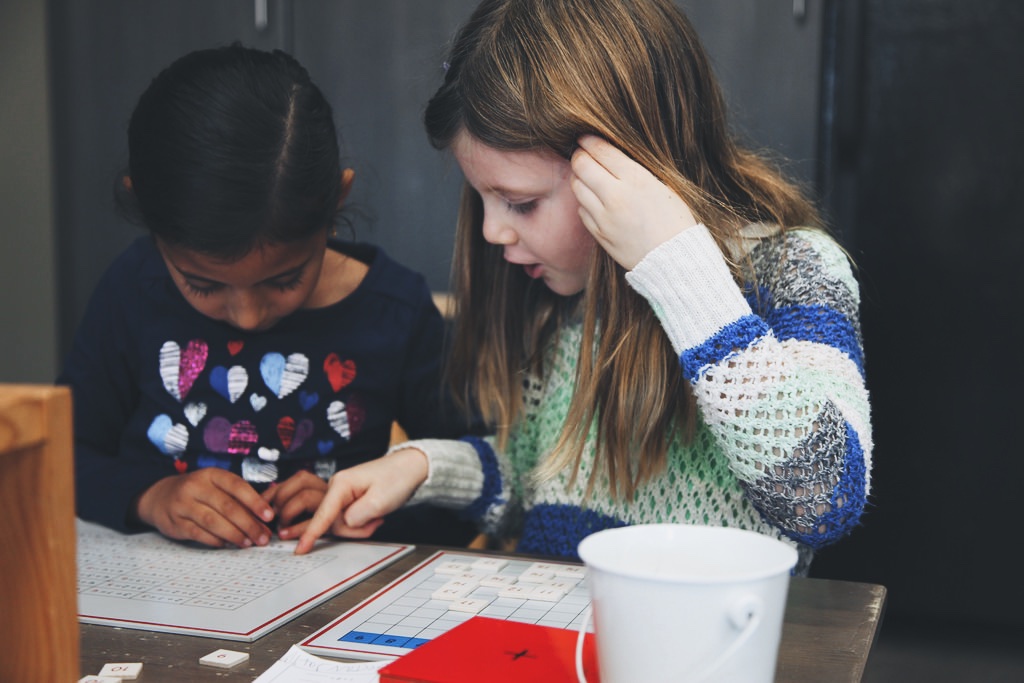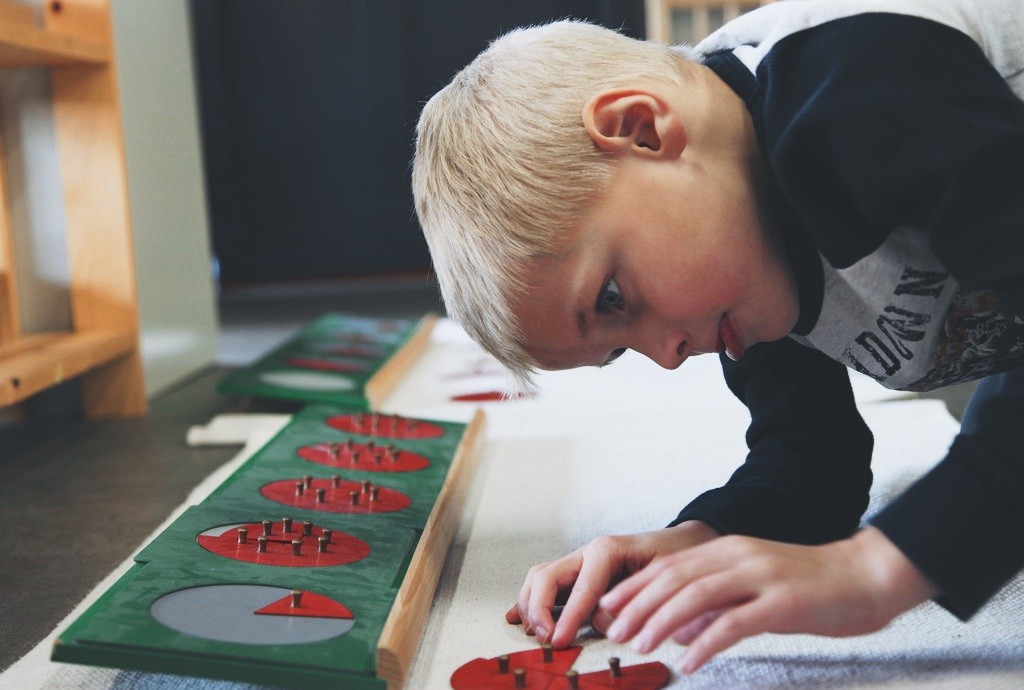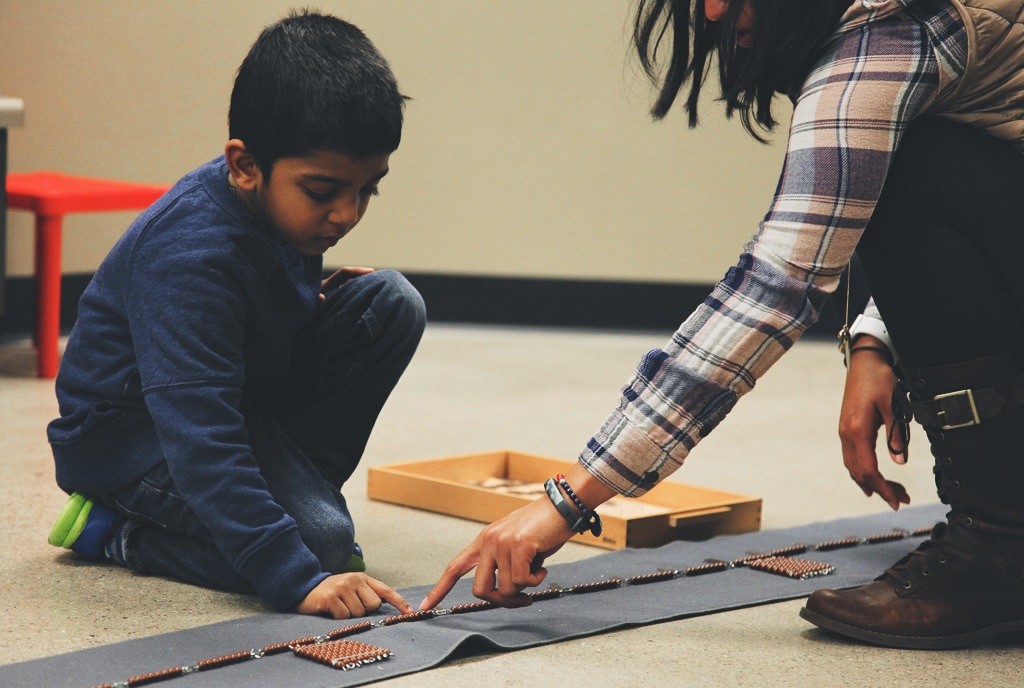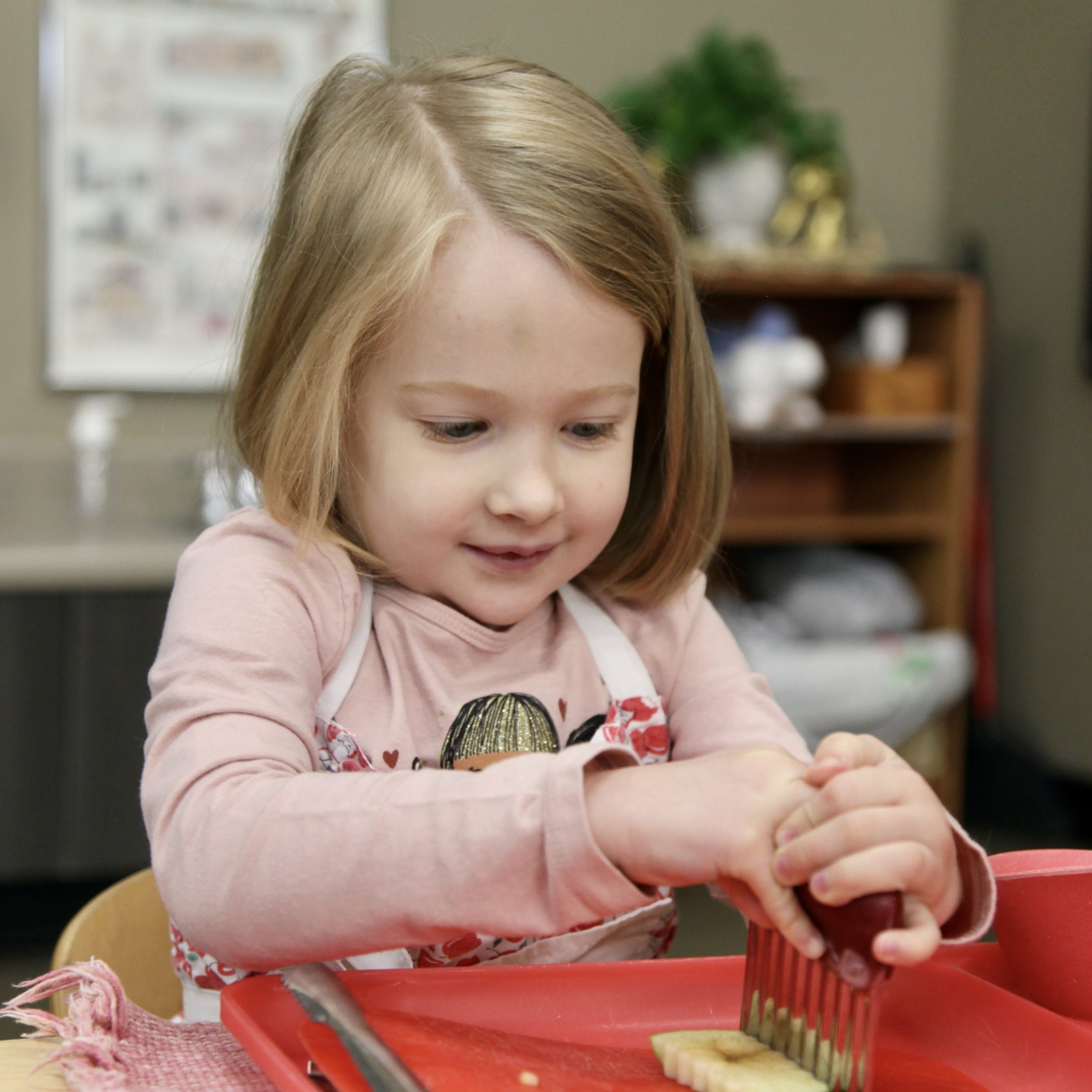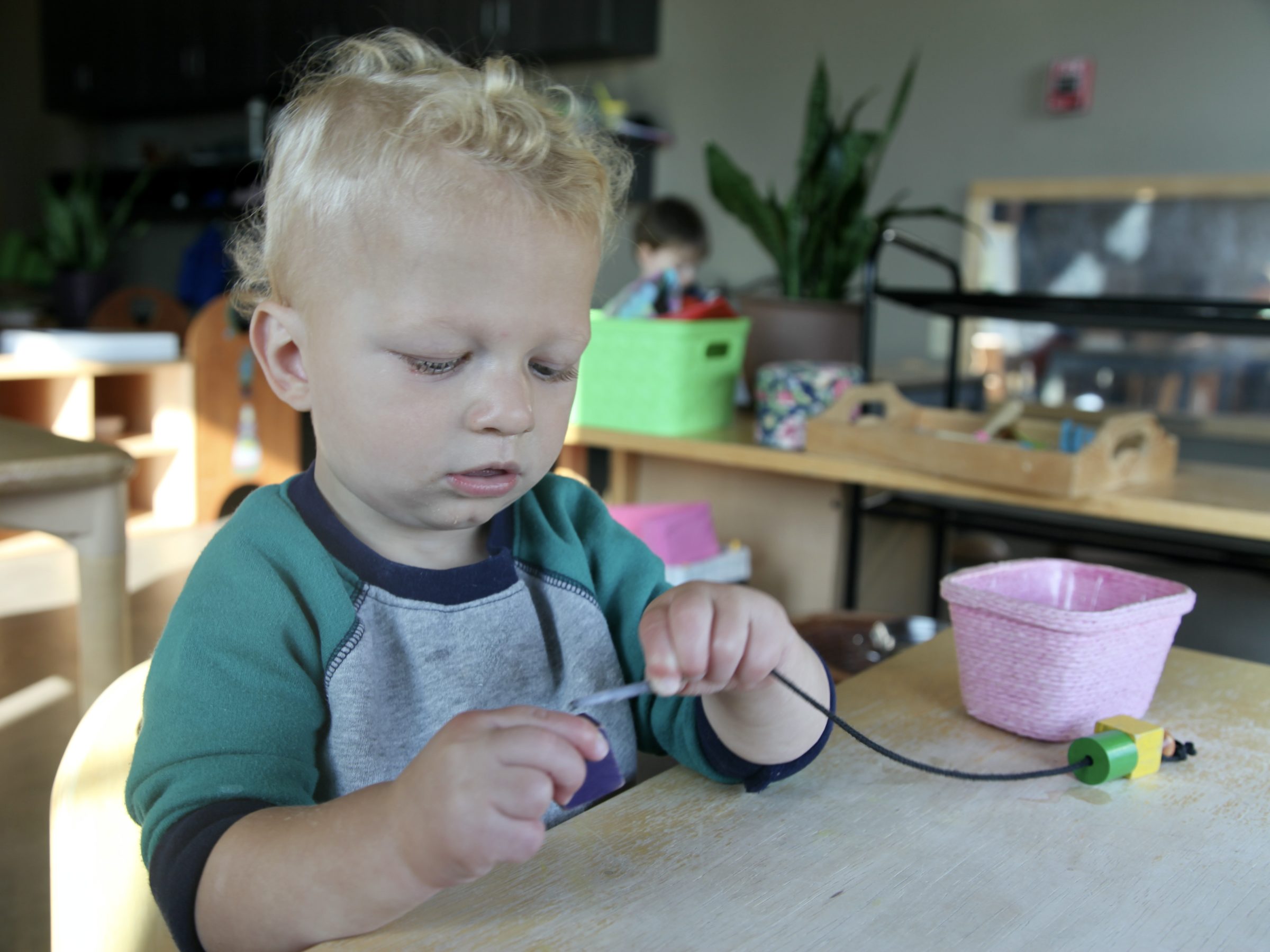Kindergarten Montessori
Thoughts & Reflections
At some point, all children at Baan Dek go on to have different adventures. As hard as it always is to see them go, we know they have amazing things to come.
Since their earliest days with us, we have been working to meet your child’s needs in a way that leads to their greatest success — not just at Baan Dek, not just at their next school, but throughout their lives, as full citizens of their community and of the world. The Montessori classroom serves not only the academic needs of each child, but also the psychological, emotional foundation developing at this early age.
Children are encouraged to meet their own needs as best they are able — no permission is required to use the bathroom or to get a tissue. There is freedom from the first days, to choose an available table, to select a work you have been shown, to observe a friend working with a material you have not been shown. This is one of the ways we show children we respect and trust them.
However, the whole world does not operate like this. Many things are decided for children in their lives, particularly in non-Montessori schools: when it is time to eat, what to study and for how long, even where to sit. A child who has been excusing herself to get a tissue since she was one or two might find it rather startling to be told they cannot do that in this new environment. But this is the reality, and it is one we help prepare children for, much as we prepare them for addition or for writing.
Every time a child pours carefully from one container to another, rather than all over the tray or table; every time a child remembers to walk inside even though she wants to run; every time a child waits patiently since snack is not yet available, she is developing self-control. This self-control grows as the child does, allowing greater flexibility with her young friend who is still learning the rules, while still holding herself to a higher standard. This self-control takes time to transfer not just from these moments, but to everyday situations, to relationships.
We work with the goal that children who leave Baan Dek have foundational skills to explore subjects that interest them intellectually, and how to ask for help, and who to ask, when they encounter a bump in the road. We also work with the goal that children leave Baan Dek empathetic leaders, holding themselves to a high standard of integrity, helping others along the way, knowing they are important to the community.
Change is always hard. Sometimes it’s easier, sometimes more challenging, but it’s an important and natural part of life. The butterfly breaking out of the chrysalis undergoes great struggle, but it is through this transformative moment their wings get their strength.
“The butterfly breaking out of the chrysalis undergoes great struggle, but it is through this transformative moment their wings get their strength.”
As adults, we always would rather take on the pain, tears, and challenges than see a child struggle, but no one can grow for the child. Instead, we try and give them all the skills we can before the get to the moment where they’re needed. The final Kindergarten year is, for many children, the final tool leading to success.
Young children’s brains are still developing, and undergoing a change more rapid than any other time in their lives. They’re acquiring not just intellectual capacities, but problem-solving and logic, patience, and other abilities which take time to develop.
There is a set of skills called Executive Function, which are crucial for planning and organizing, remembering details, help for time management and attention, and help you determine what is appropriate in various situations. Executive Function is working when you make a joke with a friend at a party, versus at work during an important meeting. It is what allows you to set the alarm for the right time, given what your morning requires and when you need to be at work. Perhaps most importantly, it is crucial in learning to master emotions, impulse control, self-discipline, and allows both children and adults to learn from past experiences in order to grow in the present, and understand what to do in the future. This skill is critical for success through life.
The greatest gift one can give a child is time. Time to struggle with pulling to standing before learning to walk. Time to try and try and try with a zipper. For some children, time before moving to a world where so much will be decided for them, time for the skills which have been growing to coalesce, time to develop those executive function skills which aid in their success.
The preschool Montessori child has been learning through osmosis, how to help a friend, how to stick with a problem to completion, how to wait patiently. The Kindergarten year gives them opportunities to use these skills in a safe environment, with friends and teachers who know and love them, who perpetually encourage them to be their best selves.
The Montessori child knows the right thing to do; the Montessori Kindergartener can learn to be the positive example, can learn how much impact they have on the world, how what they do and say affects others. The Montessori child is able to meet their own needs; the Montessori Kindergartener is learning when those needs must be secondary in order to best serve the needs of the group, how to meet their own needs without negatively impacting others.
Some children can leave the Montessori classroom at any time, perhaps mid-year because of a family move, and be successful wherever they are, in any situation, with any group of children. Other children flourish with the gift of this final year in the Montessori Primary Classroom, where all the knowledge, facts, abilities they’ve been gathering for the past few years come together to help the child be intellectually independent, love learning, understand appropriate social behavior, and be in control of and accountable for their own words and actions. Only the parent can say what their child needs. We all want what is best for your child, you decide what that is.
We wrote this thinking about the weighty decision each family makes with regard to where their child attends kindergarten. While we cherish your children as long as they are with us, we understand and respect your decision, whatever it might be.
Written by:
Charlotte Snyder
